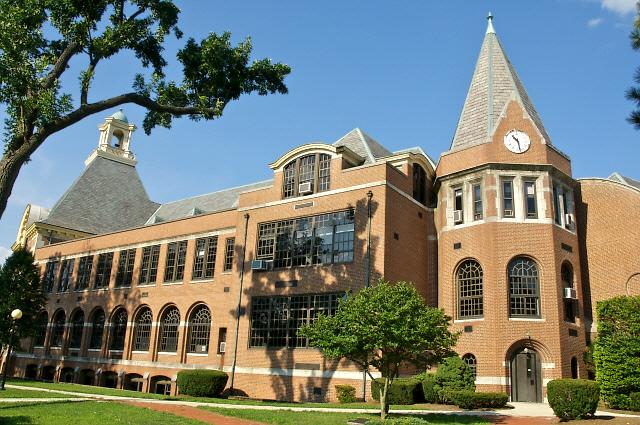Time for a more thoughtful post...I just read an op-ed piece in the NY Times by David Brooks, about institutions, what they ask of us and how they shape our lives. Brooks writes about "thinking institutionally," and I thought it was an interesting way to think about schools and all of us -- educators, parents, students, administrators -- who are part of the institution. He says, "In this way of living, to borrow an old phrase, we are not defined by what we ask of life. We are defined by what life asks of us. As we go through life, we travel through institutions — first family and school, then the institutions of a profession or a craft. Each of these institutions comes with certain rules and obligations that tell us how to do what we’re supposed to do. Journalism imposes habits that help reporters keep a mental distance from those they cover. Scientists have obligations to the community of researchers. In the process of absorbing the rules of the institutions we inhabit, we become who we are."
Brooks continues, "New generations don’t invent institutional practices. These practices are passed down and evolve. So the institutionalist has a deep reverence for those who came before and built up the rules that he has temporarily taken delivery of. “In taking delivery,” Heclo [an author he studied] writes, “institutionalists see themselves as debtors who owe something, not creditors to whom something is owed.”
"The rules of a profession or an institution are not like traffic regulations. They are deeply woven into the identity of the people who practice them. A teacher’s relationship to the craft of teaching, an athlete’s relationship to her sport, a farmer’s relation to her land is not an individual choice that can be easily reversed when psychic losses exceed psychic profits. Her social function defines who she is. The connection is more like a covenant. There will be many long periods when you put more into your institutions than you get out."
Brooks then included excerpts from a great speech by Ryne Sandberg when he was inducted into the Hall of Fame in 2005, on the institution of baseball. [Read entire column here.] And then he wrapped up,"Institutional thinking is eroding. Faith in all institutions, including charities, has declined precipitously over the past generation, not only in the U.S. but around the world. Lack of institutional awareness has bred cynicism and undermined habits of behavior. Bankers, for example, used to have a code that made them a bit stodgy and which held them up for ridicule in movies like “Mary Poppins.” But the banker’s code has eroded, and the result was not liberation but self-destruction.
"Institutions do all the things that are supposed to be bad. They impede personal exploration. They enforce conformity.
"But they often save us from our weaknesses and give meaning to life."
Today I just thought I'd like to think a little more deeply about the institution of public schools and education. I now return you to our regularly scheduled discussions of math and budgets and phone calls and turf fields. :)
Welcome!
Welcome to Laurie Goodman's blog. I use this space to share news and opinions about education and schools in Ridgewood, the state of New Jersey and the nation, in addition to other issues I'm personally interested in. I invite you to share your thoughts, feelings, questions or opinions, too, by posting comments on any blog entry. Please observe basic courtesy -- keep your comments focused on issues, no personal attacks or bullying, please. Contact me directly at: lauriegood@mac.com
Subscribe to:
Post Comments (Atom)





1 comment:
It's ironic that David Brooks writes this piece for the NY Times, a newspaper hell-bent on destroying the very institutions he seeks to preserve.
Post a Comment